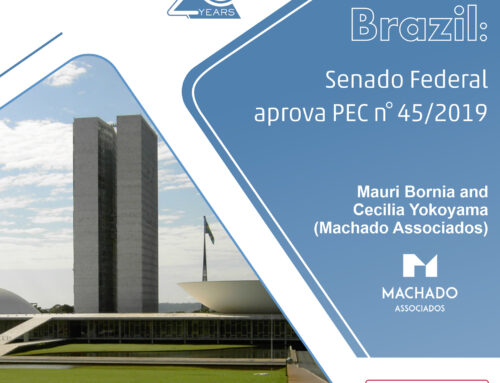Peru: Mergers & Acquisitions
This country-specific Q&A provides an overview of Mergers & Acquisitions laws and regulations applicable in Peru.
What are the key rules/laws relevant to M&A and who are the key regulatory authorities?
For private M&A transactions, the key legislation is the Peruvian Corporate Act (Ley General de Sociedades) and the Peruvian Civil Code. For public M&A transaction, in addition to the previously mentioned laws, the Capital Markets Act (Ley de Mercado de Valores), the Takeover Regulation (Reglamento sobre Oferta Pública de Adquisición y de Compra de Valores por Exclusión) and other relevant rules and regulations issued by the Superintendence of Capital Markets (SMV in its Spanish acronym) are applicable.
Public M&As are supervised by the SMV and the Lima Stock Exchange whereas Private M&A are not supervised by any regulatory body; provided that, certain companies that hold certain assets or permits might require authorizations from other governmental bodies. In example, companies holding a PPP concession in toll roads will require a prior authorization from the competent regulatory body (Ositran) and the governmental grantor of the concession.
From June 2021, the Merger Control Act – Law N° 31112 (Ley de Control Previo de Concentraciones Empresariales) entered into force and the Peruvian competition agency, INDECOPI, acts as the regulatory authority for competition matters. The merger control by INDECOPI will be applicable to (a) mergers and consolidations; (b) acquisition of shares and relevant assets (tangible and intangible); and (c) joint ventures and other partnership agreements (including public private partnerships), when (i) the purchaser gains control over the target company; and (ii) the value of the gross sales or assets from the last tax period of all involved parties in the transaction is, jointly, equal or higher than approximately US$ 146.7 Million and the value of the gross sales or assets from the last tax period of at least two of the parties involved is, individually, equal or higher than US$ 22.378 Million.
Additionally, the Regulation of the Merger Control Act establishes the following:
There is ex officio procedure if INDECOPI considers a transaction, that does not surpass the abovementioned thresholds, may originate anticompetitive effects in the Peruvian market. INDECOPI will have a 12 month-period since the transaction is closed to review it and consider if it requires an authorization from such governmental entity. INDECOPI may approve the transaction or mandate to the parties to implement permanent or temporary remedies.
Nonetheless, the parties may begin a voluntary procedure to receive clearance from INDECOPI. However, under this scenario, the parties will have to obtain the authorization of INDECOPI to close the transaction.
A fast-track procedure is applicable when (i) the parties and their economic groups do not perform commercial activities in the same market as the target company or asset’s market (either market of the product or service or geographical market) in Peru or when it does not participate in any stage of the production or supply chain in Peru; or, (ii) a transaction where the buyer passes from joint control to exclusive control.
The fast-track procedure (as well as the ordinary procedure) will only be applicable if the abovementioned thresholds are met.
INDECOPI may review Public-Private Partnerships (PPP) agreement during any stage of the procurement.
What is the current state of the market?
Although the Peruvian M&A market has shrank in comparison with 2019, where 91 M&A transactions were reported for a total value of US$ 3,611.83 million, mainly due to COVID-19 and the political situation in Peru, since the third quarter of 2021 there has been a recovery in the market. Hence, on 2021, 68 M&A transactions were reported for a total value of US$ 2,622.17 million, in comparison to the 47 M&A transaction which were reported on the year 2020 for a total value of US$1,148.23 million. Additionally, besides the new Merger Control Act, no new legislation has been promulgated which may substantially affect the M&A market this year. In this way, the M&A market in Peru should not be affected due to legal matters, as the legislation has remained considerably unaltered from the past 20 years.
Which market sectors have been particularly active recently?
The top 5 market sectors which have been more active in M&A transaction in 2021 were the telecom and technology sectors, the health and pharmaceutical sectors, electricity sector and the agriculture and agribusiness sectors. The year 2022 started with strong M&A activity in the mining sector, which is presumed to increase due to the high international metal prices, despite the current political status in Peru.
What do you believe will be the three most significant factors influencing M&A activity over the next 2 years?
i. The Peruvian Control Merger Act: the law entered into force on June 14, 2021, and all the M&A transactions in Peru or that have a direct or indirect effect in Peru now need clearance from the Peruvian competition authority – INDECOPI.
ii. Political Climate: Since Pedro Castillo took office on July 2021, there has been political tension between the executive branch and the congress. There also have been a few corruption cases arising from the current government in office. However, economic figures have not been seriously affected by the political climate and economist forecast positive economic results for the year 2022.
iii. COVID-19 Management and Technology: Restrictions and limitations due to COVID-19 in Peru have substantially lightened up in comparison to 2020 and 2021. Although it is not compulsory, many companies are still working remotely, and facemask are still compulsory indoors and outdoors. As of February 2022, nearly 70% of the population has been vaccinated with 2 doses and 28% have received a booster shot.
What are the key means of effecting the acquisition of a publicly traded company?
If a person or group of persons will, directly or indirectly, take control of publicly traded company (control being considered if such person(s) acquires an interest over shares with voting rights or any other equity instrument which exceeds 25%, 50% or 60% of the total voting shares in the company or enters into a contract which grants such person to obtain a controlling stake or appoint the board of directors), then the acquisition will effected by way of a tender offer (Oferta Pública de Adquisición – OPA).
If the person will be acquiring (i) an interest below the abovementioned thresholds; (ii) any other equity instrument which are not shares with voting rights or any other instrument or contract that could give such person control of the publicly traded company, then the acquisition will be performed in the stock market through a stock trader.
Alternatively, the purchaser may also enter into an agreement with the controlling shareholder to acquire its shares directly. Once the shares of the controlling shareholders are acquired by the purchaser, the purchaser must perform an offer (OPA Posterior) to the remaining shareholders for a number of shares resulting from a formula set in the Takeover Regulation.
What information relating to a target company will be publicly available and to what extent is a target company obliged to disclose diligence related information to a potential acquirer?
The Companies’ Registry and other Governmental Agencies have general information on a target company (i.e. certain representatives, registered capital stock, litigation, etc.). However, that information is not necessarily updated or complete, so it is customary for the purchaser only to request and pay for information which have not been deliver during the due diligence process or would want to have certainty of the information received.
Information that only the target company may disclose as it is consider private information under Peruvian law is:
- Identity of the shareholders and their current equity interest (unless it is a public company)
- Financial statements (unless it is a public company)
- Arbitration procedures
- Private contracts (e.g. financial agreements and debt instruments, service agreements, joint ventures, employment contracts, etc.)
- Tax returns and tax investigations by the Peruvian tax authorities.
- Administrative sanctions
- Some licenses and permits issued by the Peruvian local municipalities authorizing the use of property for business purposes.
Notwithstanding above, the following information from public companies is publicly disclosed:
- Identity of the shareholders and their current equity interest if the hold, at least, 5% of the total capital stock of the target company
- Financial statements, including annual, quarterly and mid-term financial statements
- Relevant information disclosed by the target company in accordance with Relevant Matters and Reserved Information Regulation (Resolución de Superintendencia N° 0005-2014, Relgamento de Hechos de Importancia e Información Reservada).
- Dividends policy
- Corporate governance policy.
- Economic group information.
- Financial information.
- Credit and securities rating reports.
- Sanctions imposed by the SMV.
The sellers or the target company cannot be obliged to disclosed all their information but the purchaser, during the negotiation of the share purchase agreement, may include (i) detailed representations regarding the target company; and, (ii) sand-bagging provisions.
To what level of detail is due diligence customarily undertaken?
Due Diligence is performed customarily in all M&A transaction. However, the depth of such Due Diligence will depend on the purchaser needs. Executive Due Diligence is regularly composed by (i) corporate law; (ii) tax law; (iii) labor law and employment; (iv) contracts; (v) finance, and (vi) main regulatory issues. A complete Due Diligence is composed by all legal practice areas, depending on the target company industry sector.
What are the key decision-making organs of a target company and what approval rights do shareholders have?
Although the sellers may decide on their own to sell their shares, customarily a Shareholders’ Meeting approved the transaction through a resolution. Especially if the shareholders have pre-emption rights over the transferred shares. In the resolution, the shareholders will waive their pre-emption rights in favor of the purchaser.
What are the duties of the directors and controlling shareholders of a target company?
Directors:
- Act within their powers
- Act on the benefit and the best interest of the company
- Exercise independent judgment
- Exercise reasonable care, skill and diligence
- Avoid conflict of interest
Controlling shareholders must respect the minority shareholders rights and act within the scope of the Peruvian law.
Do employees/other stakeholders have any specific approval, consultation or other rights?
Employees or other stakeholders would only have specific approval, consultation or any other right if there is written contract with the Target Company with a change of control provision. However, in case of breach of this provision, the consequences are that the contract is terminated by default and the Target Company must indemnify the other party. Customarily, the Target Company give notice to such parties (especially to financial entities) and generally they waive their rights to the change of control provision or conditioned it to certain matters prior to grant such waive.
To what degree is conditionality an accepted market feature on acquisitions?
Conditionality is generally accepted if the sellers must perform an act prior to closing e.g. cancel an encumbrance over relevant assets or amend any internal procedure in the Target Company. Currently, it is a contractual matter agreed by the parties. Additionally, if the Merger Control Act is applicable, the transaction will be conditioned to the approval by INDECOPI before closing.
What steps can an acquirer of a target company take to secure deal exclusivity?
In a non-competitive process, it is customary that the acquirer requests a deal exclusivity to the Target Company in the non-binding offer letter and the sellers and/or the Target Company grant such exclusivity. The deal exclusivity is commonly granted between 60 and 90 days, but it can be renewed for an additional period, prior negotiation between the parties.
What other deal protection and costs coverage mechanisms are most frequently used by acquirers?
Once the exclusivity is secure it is common to obtain break-up fees in case one of the parties opt out of the transaction without reasonable cause.
Also, in the Share Purchase Agreement (SPA), acquirers most frequently deal protection and cost coverage mechanisms are escrow accounts, confidentiality, non-compete and non-solicitation clauses and indemnity clauses.
Which forms of consideration are most commonly used?
Cash consideration is the most commonly used. But other forms of considerations such as share exchange or asset consideration have been used in M&A transactions in Peru.
At what ownership levels by an acquirer is public disclosure required (whether acquiring a target company as a whole or a minority stake)?
For private companies, there is no mandatory obligation to publicly disclosed ownership levels. For public companies, all information regarding the shareholders that hold at least 5% of the capital stock of the target company is public.
At what stage of negotiation is public disclosure required or customary?
For private M&A transactions, it will only be publicly disclosed if the parties agree to disclose it and once the transaction is closed or when the SPA is executed (if the signing date and the closing date are deferred). In transaction that may bring media attention, parties may decide only to partially disclose the M&A transaction.
For public M&A transactions, the negotiation must be reported to the SMV but it can be reported as a reserved matter and the SMV will not publicly disclosed the negotiation. Once the binding offer is accepted by the shareholders, the transaction becomes publicly disclosed.
Is there any maximum time period for negotiations or due diligence?
No. The maximum time period is negotiated between the parties. Regularly it will be the same time as the exclusivity period mentioned in section 12 above. Parties may continue to negotiate once the exclusivity period terminates but it will be under the purchaser’s risk.
Are there any circumstances where a minimum price may be set for the shares in a target company?
No, parties are free to set the shares’ price. But it must be taken into consideration that the Peruvian tax authorities may object and may start an inspection if the share price is below market value.
Is it possible for target companies to provide financial assistance?
No. According to the Peruvian Corporations Act financial assistance by the Target Company is prohibited, including granting security interests by the Target Company to the buyer or any of its affiliates. Private equity transaction have been performed in Peru by using complex corporate and tax structures that will not be considered as financial assistance.
Which governing law is customarily used on acquisitions?
Peruvian law is the customarily used on acquisitions in Peru. But foreign law may be used in some transaction where foreign parties are involved, but the parties must consider that in case of conflict of law, Peruvian law will prevail.
New York law is the customarily used in Peru for acquisition at an international level.
What public-facing documentation must a buyer produce in connection with the acquisition of a listed company?
- The prospectus.
- The notice to be publish by the SMV, the Lima Stock Exchange, in the Peruvian Gazzette and in a newspaper.
- The corporate authorizations.
- The offeror’s guarantee equivalent to the total consideration.
What formalities are required in order to document a transfer of shares, including any local transfer taxes or duties?
For private M&A transaction, parties must enter into a share purchase agreement (SPA) to document the transfer of shares. The Target Company will register such transfer in the Shares’ Ledger (which is held under custody by the Company’s CEO). There are no share transfer taxes or stamp duty, but the sellers will have to declare such transfer in their tax return filed to the Peruvian tax authority – SUNAT. The tax rate will depend if the sellers are individuals or corporations and if the transfer is conducted through the Lima Stock Exchange or not.
For public M&A transaction, transaction documentation will depend if the takeover is (i) a prior (OPA previa); or, (ii) posteriori (OPA posterior). Notwithstanding, the prospectus and the offeror’s guarantee are essential documentation in both type of public takeovers. There is not share transfer tax or stamp duty in public takeovers. Shares are registered electronic by an agency named CAVALI.
Are hostile acquisitions a common feature?
No. There have been very few hostile acquisitions in the last 20 years. However, there has been hostile acquisitions in foreign jurisdictions which have affected directly in their Peruvian subsidiaries.
What protections do directors of a target company have against a hostile approach?
As hostile takeovers are not common, there has been little or no experience on protective measures. However, certain bylaws and directors’ agreements contain provisions such as poison pills or “sale of crown jewels” that can be activated upon a hostile takeover.
Are there circumstances where a buyer may have to make a mandatory or compulsory offer for a target company?
In public M&A transactions, the buyer will be obliged to make an offer to the minority shareholders in a posteriori public takeover (OPA posterior). In this case, the buyer and the majority shareholders may enter into an agreement out-of-the-counter. Once the shares from the majority shareholders are acquired, the buyer has 4 months to make an offer to the minority shareholders. The valuation of the minority shareholders’ shares will be performed by an appraiser appointed by the SMV and the number of shares to be acquired by the buyer are calculated by a formula set in the Takeover Regulation.
If an acquirer does not obtain full control of a target company, what rights do minority shareholders enjoy?
Minority shareholders have the right to: (i) attend Shareholders’ Meetings and vote; (ii) receive payment of dividends; (iii) the shareholders holding a least 20% of the voting shares may request to convene a Shareholders’ Meeting; (iv) request information on the target company; (v) the shareholders holding a least 10% of the voting shares may request to audit the target company’s financial statements; and (v) shareholders may separate from the company in case they vote against a share capital decrease, merger or consolidation, spin-off, transformation of type of company or redomiciliation.
Nonetheless, a shareholder holding at least 60% of the voting shares will have absolute control of the company unless the company’s bylaws or a Shareholders’ Agreement between the majority shareholder and the minority shareholders establishes higher voting thresholds.
Is a mechanism available to compulsorily acquire minority stakes?
Besides OPA Posterior already explained, minority stakes can only be compulsorily acquired if there is a drag-along right for the majority shareholder agreed between the shareholders in a Shareholders’ Agreement.
Writers: Carlos Arata and Wilfredo Cáceres, Rubio Leguia Normand
Original: https://www.legal500.com/guides/chapter/peru-mergers-acquisitions/





